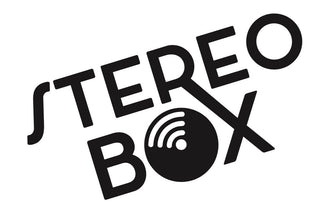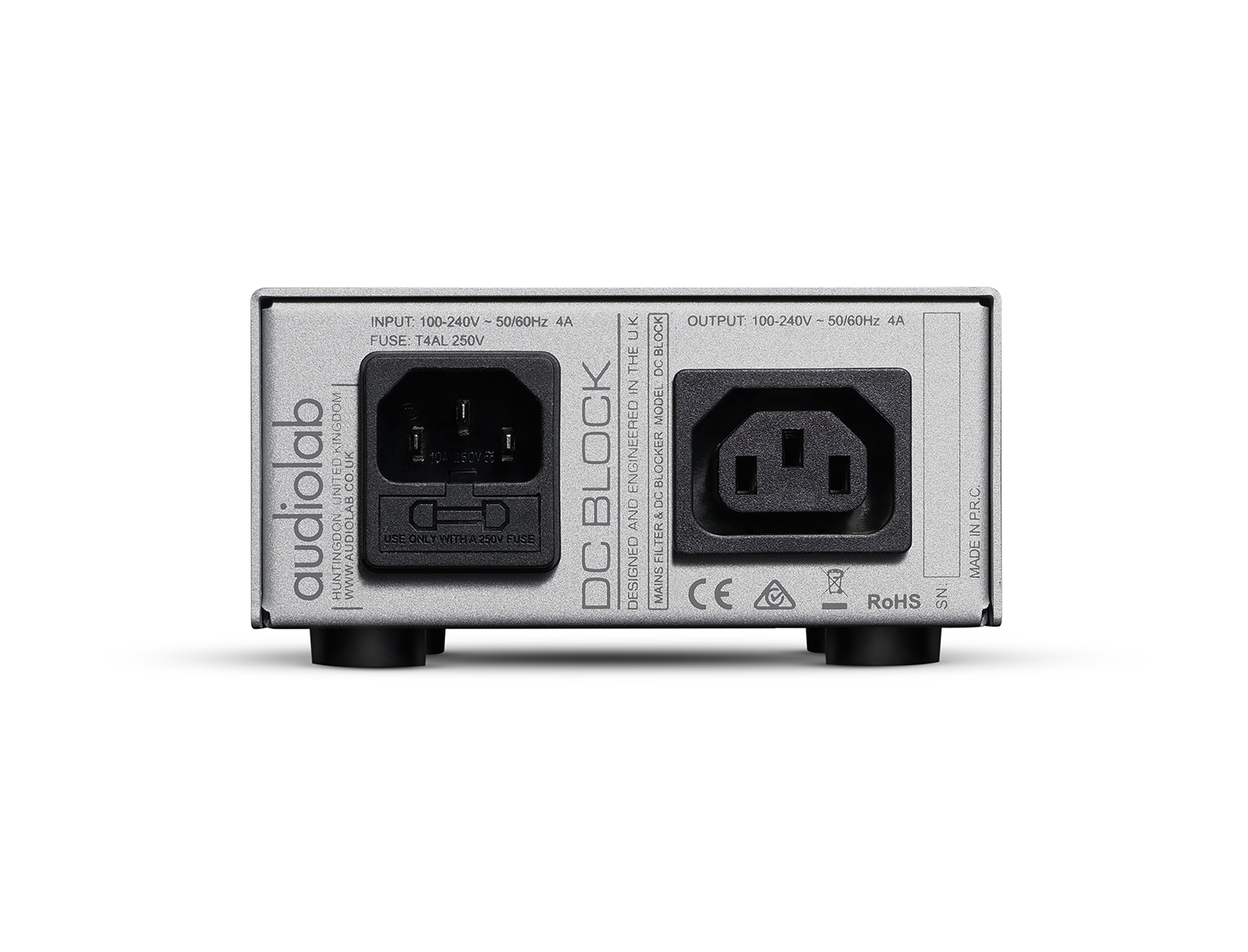
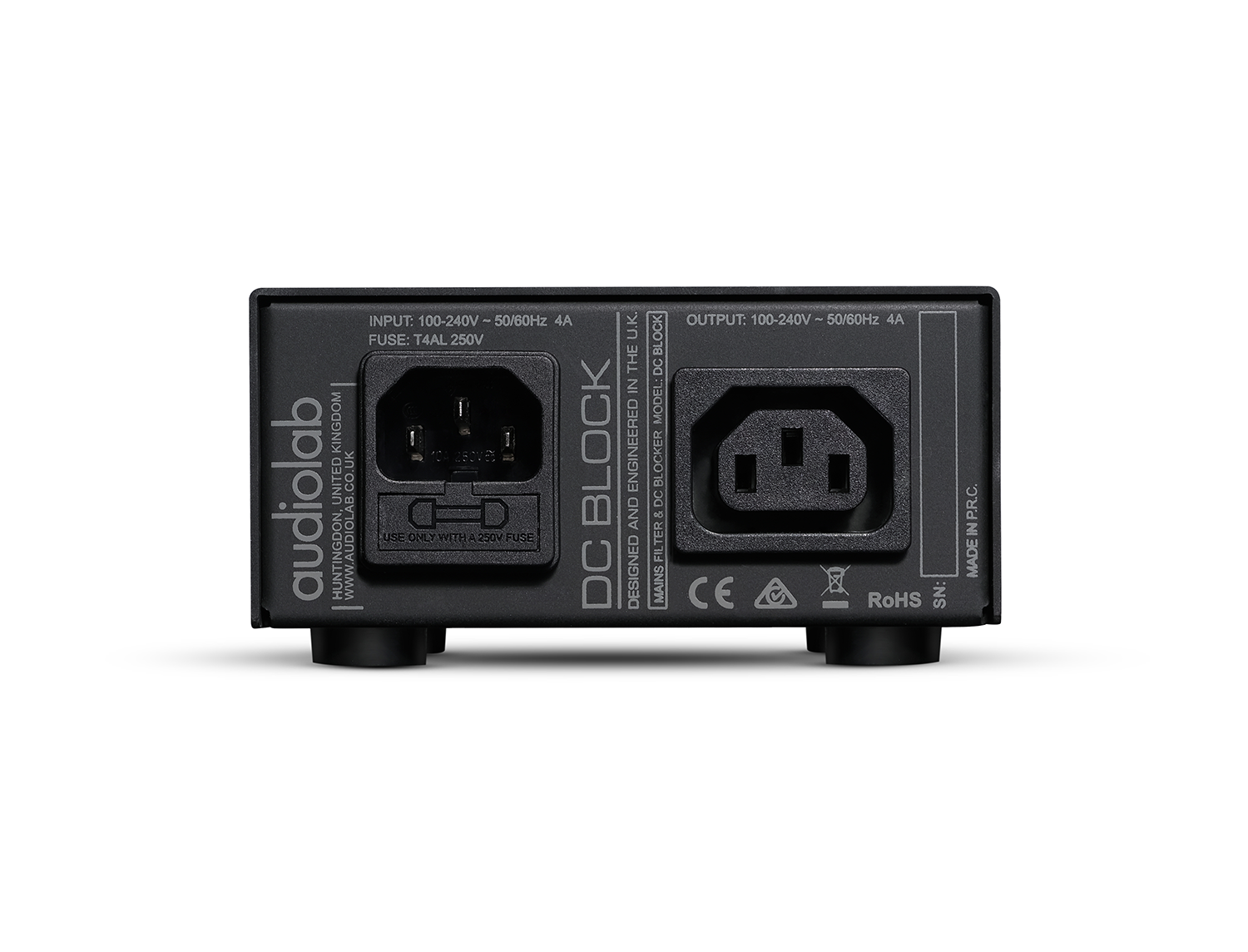
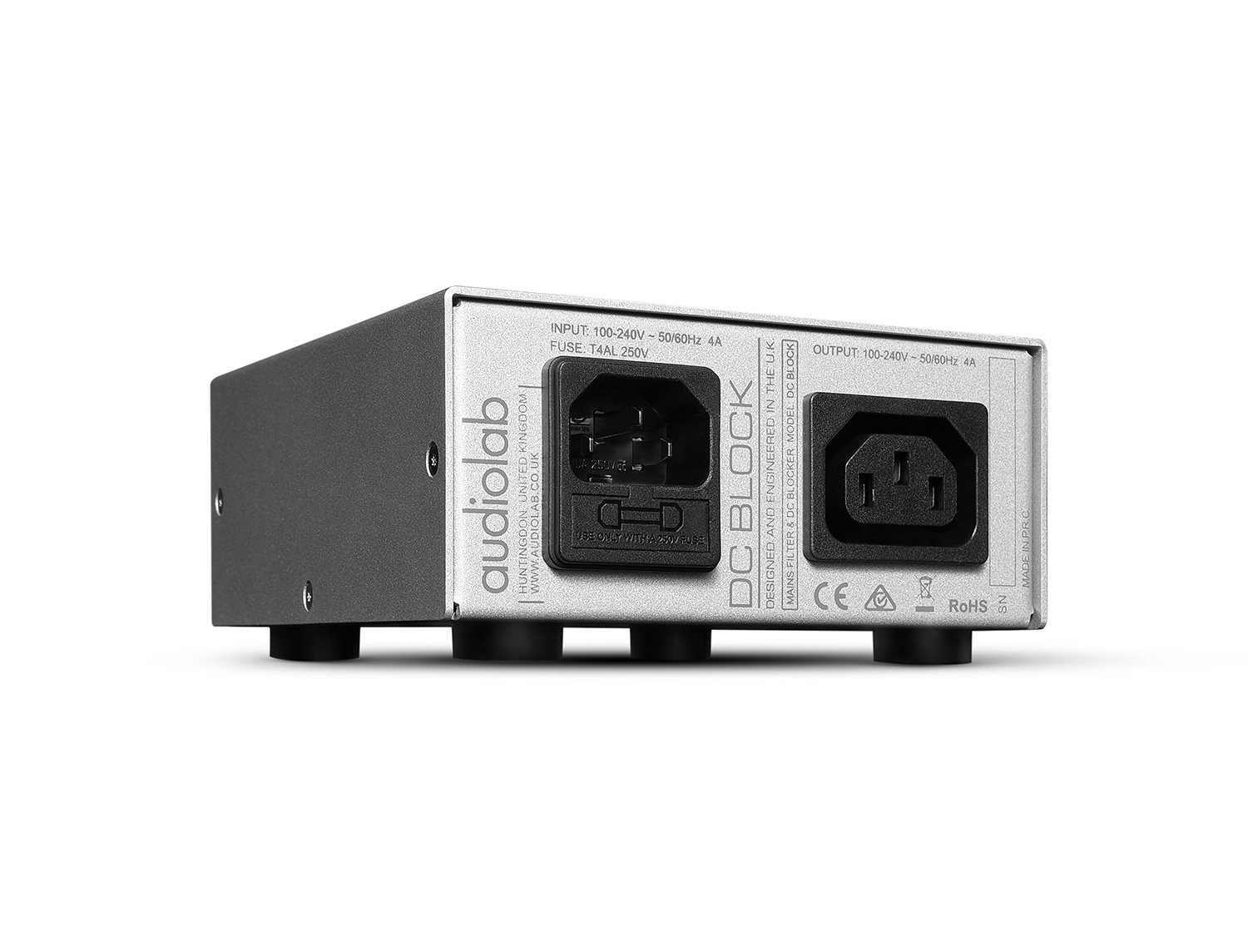
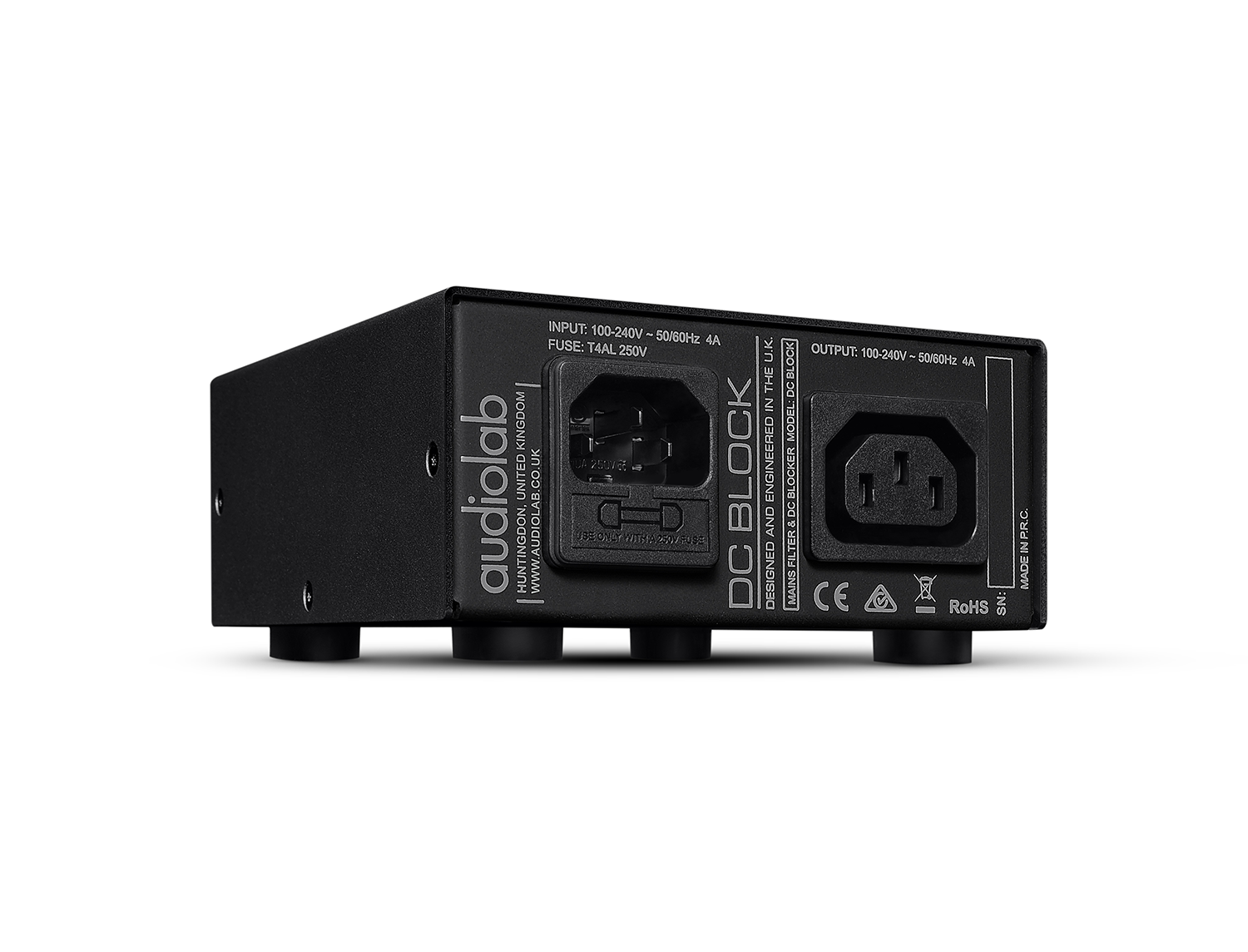
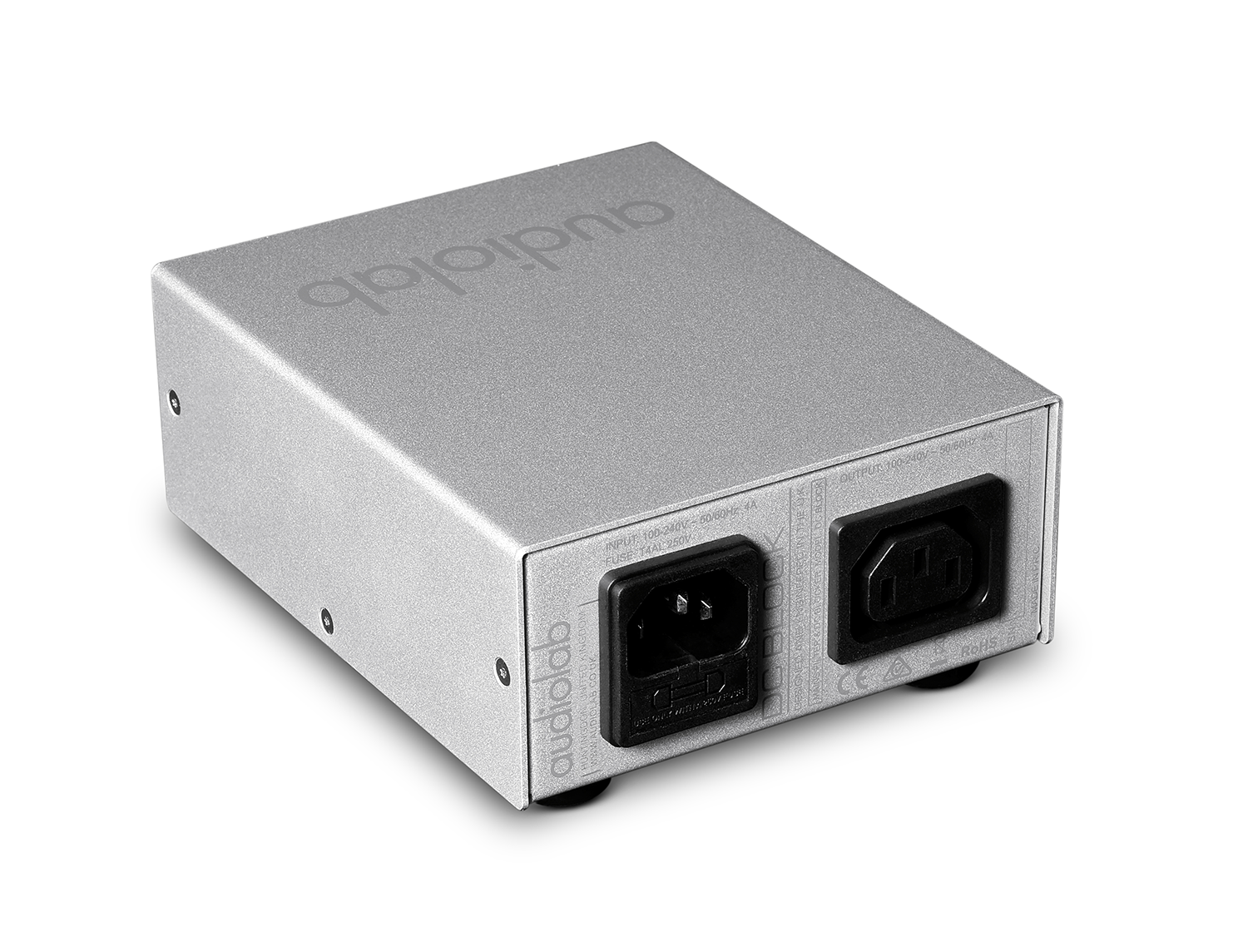
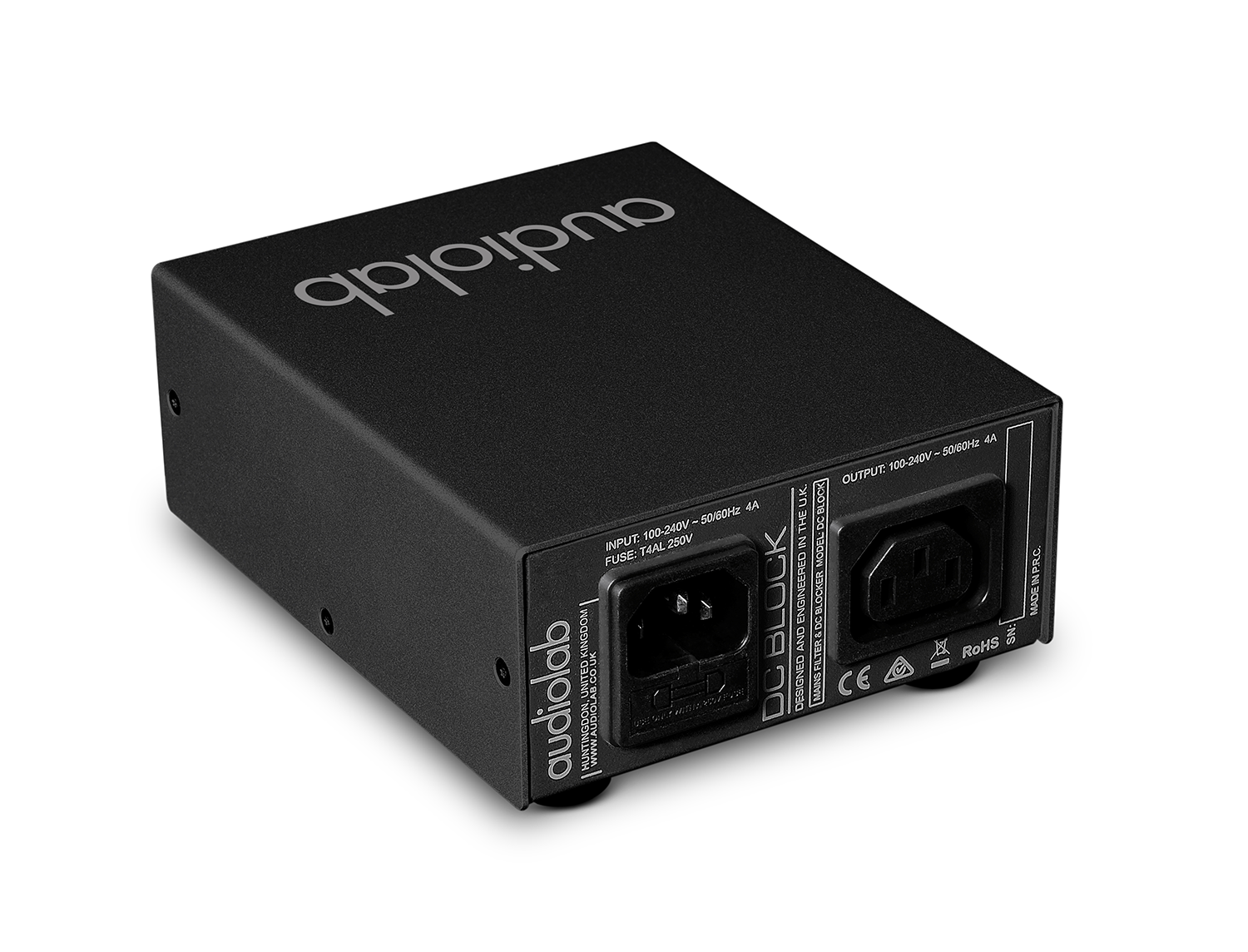
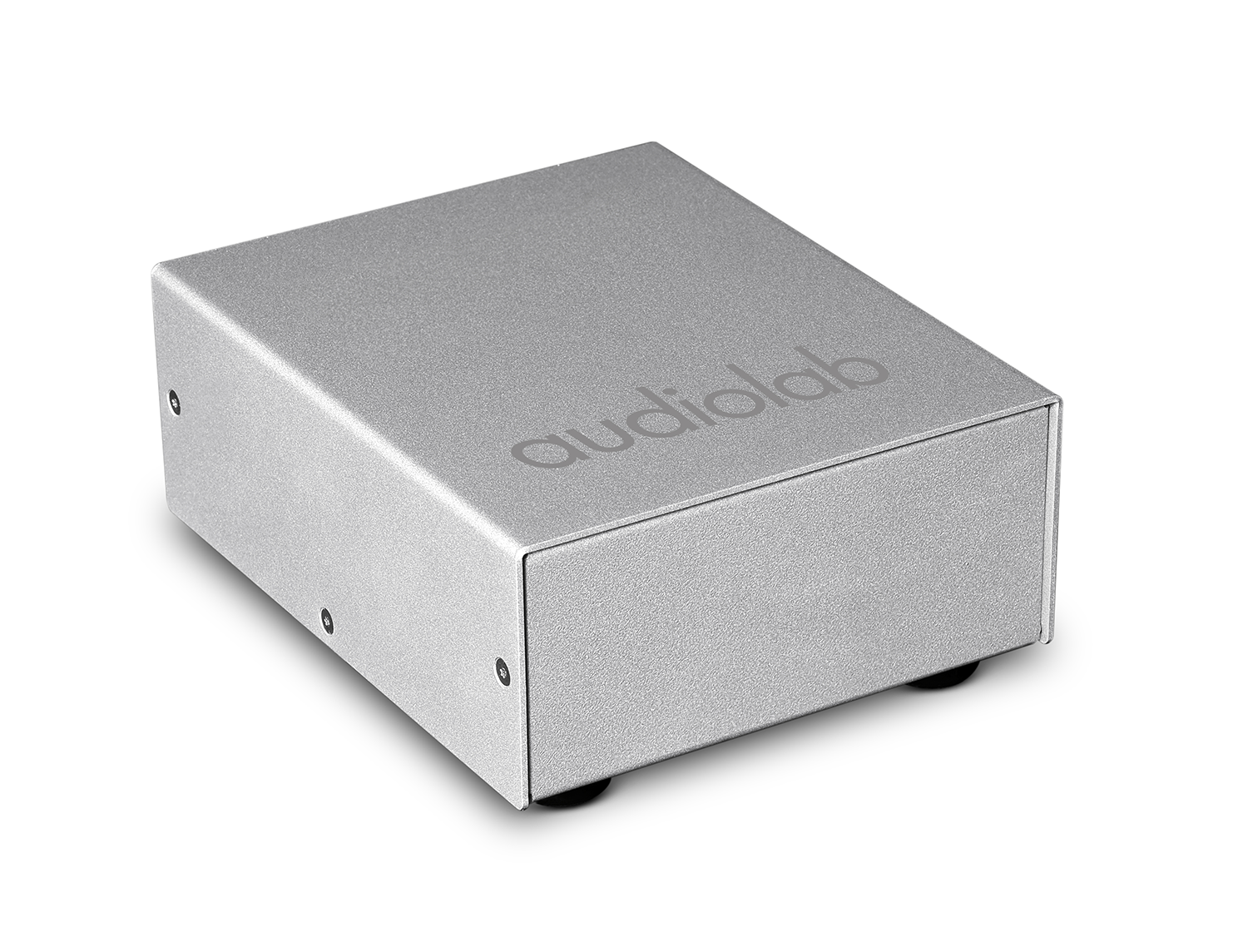
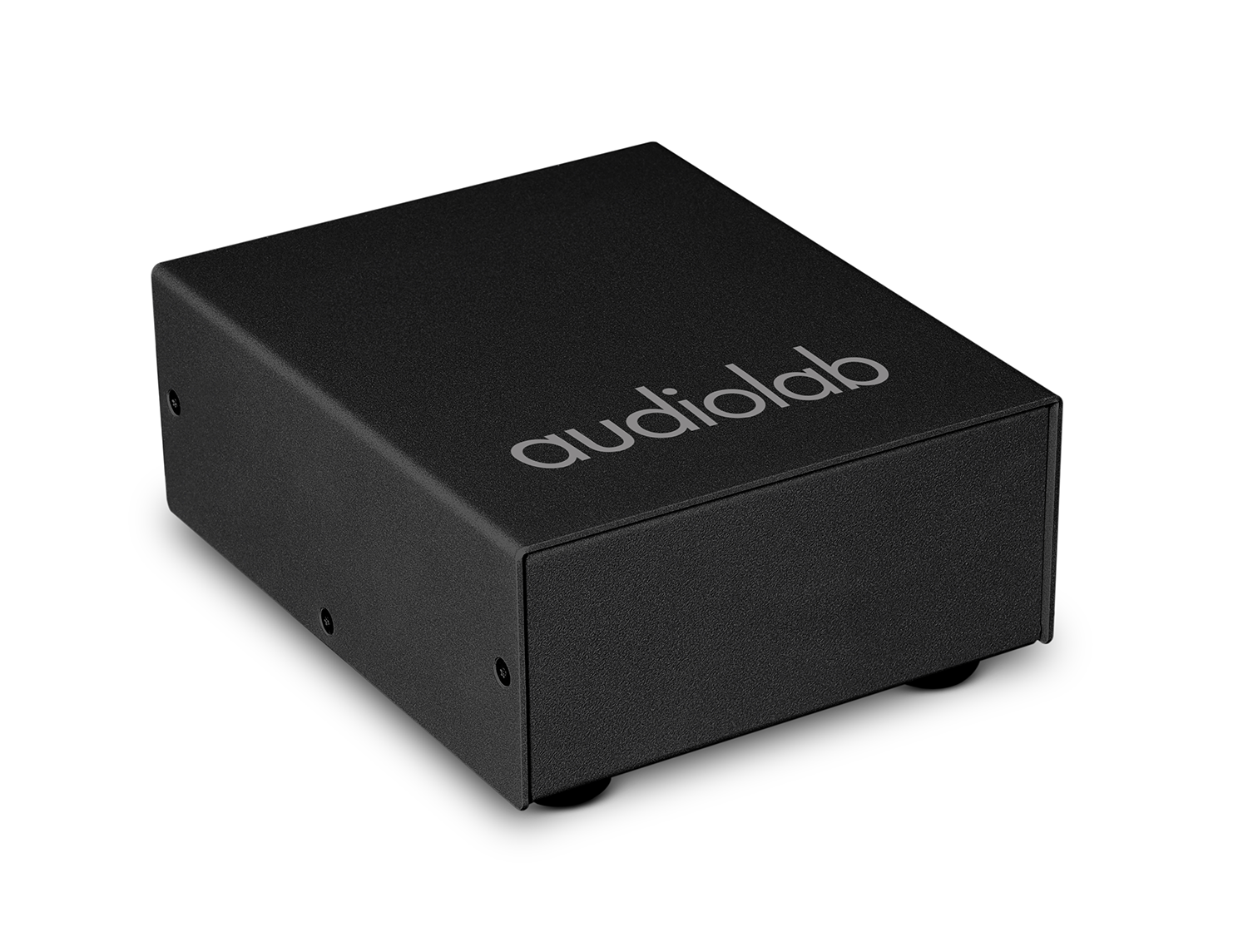
Audiolab
audiolab DC Block - Mains Filter
Color:Black
Quantity:
audiolab DC Block - Mains Filter
The DC Block was designed to improve the quality of AC electricity powering audiolab and AV audio systems.
Mains electricity has a fundamental influence on the audio signal as it passes through a system, from source to amplifier to speakers.
Mains power in a typical home is subject to interference from a variety of issues that cause the AC waveform to distort before it reaches each component. This creates noise in the audio signal, which degrades the sound quality, a situation that continues to worsen as more and more electrical devices are used in our homes.
DC mains power supply
A common problem is "DC on the mains," a problem known to affect the performance of audio equipment, especially amplifiers. In theory, the mains electricity we get from our home outlets should be pure AC, with a perfectly symmetrical sine wave alternating between positive and negative phases. However, the presence of "unbalanced loads" - a myriad of household devices that use the available AC power in the mains loop unevenly, from the weakest switches to kitchen appliances to computer power supplies - causes the waveform to be offset, resulting in DC voltage on the AC supply.
DC Voltage
AC transformers commonly used in home audio equipment cannot tolerate the presence of significant levels of DC voltage without being compromised. Less than 500 mV of DC, typical of an average home electrical supply, can be enough to cause toroidal transformers of the type often found in amplifiers to saturate, which adversely affects sonic performance and can cause audible mechanical vibration.
By blocking or cancelling the DC voltage found within the AC mains supply, the Audiolab DC Block corrects the DC offset and rebalances the mains sine wave (see illustration above). But tackling ‘DC on the mains’ is not the only benefit this dual-action device offers: it also contains a high-performance audio-grade filter circuit that removes RFI/EMI contaminants from the mains supply. This is effective in reducing both differential mode noise (aggravated by the low-cost switch mode power supplies used by many household appliances) and common mode noise (aggravated by airborne interference from telephones, Wi-Fi and Bluetooth).
Simple setup
Using the DC Block is simple: connect its output to the IEC power socket of an audio/AV component, then connect its input to a mains socket (both cables are supplied). The device is designed for use with a single component in your audio or AV system – Audiolab recommends that if you purchase a DC Block, it should be used with the integrated amplifier or power amplifier component within your system to get the most benefit from the DC-Block technology.
If desired, additional units can be purchased for use with other system electronics: preamplifiers, source components, and so on. With each additional DC block, you can expect further incremental improvements in overall system performance.
The DC Block was designed to improve the quality of AC electricity powering audiolab and AV audio systems.
Mains electricity has a fundamental influence on the audio signal as it passes through a system, from source to amplifier to speakers.
Mains power in a typical home is subject to interference from a variety of issues that cause the AC waveform to distort before it reaches each component. This creates noise in the audio signal, which degrades the sound quality, a situation that continues to worsen as more and more electrical devices are used in our homes.
DC mains power supply
A common problem is "DC on the mains," a problem known to affect the performance of audio equipment, especially amplifiers. In theory, the mains electricity we get from our home outlets should be pure AC, with a perfectly symmetrical sine wave alternating between positive and negative phases. However, the presence of "unbalanced loads" - a myriad of household devices that use the available AC power in the mains loop unevenly, from the weakest switches to kitchen appliances to computer power supplies - causes the waveform to be offset, resulting in DC voltage on the AC supply.
DC Voltage
AC transformers commonly used in home audio equipment cannot tolerate the presence of significant levels of DC voltage without being compromised. Less than 500 mV of DC, typical of an average home electrical supply, can be enough to cause toroidal transformers of the type often found in amplifiers to saturate, which adversely affects sonic performance and can cause audible mechanical vibration.
By blocking or cancelling the DC voltage found within the AC mains supply, the Audiolab DC Block corrects the DC offset and rebalances the mains sine wave (see illustration above). But tackling ‘DC on the mains’ is not the only benefit this dual-action device offers: it also contains a high-performance audio-grade filter circuit that removes RFI/EMI contaminants from the mains supply. This is effective in reducing both differential mode noise (aggravated by the low-cost switch mode power supplies used by many household appliances) and common mode noise (aggravated by airborne interference from telephones, Wi-Fi and Bluetooth).
Simple setup
Using the DC Block is simple: connect its output to the IEC power socket of an audio/AV component, then connect its input to a mains socket (both cables are supplied). The device is designed for use with a single component in your audio or AV system – Audiolab recommends that if you purchase a DC Block, it should be used with the integrated amplifier or power amplifier component within your system to get the most benefit from the DC-Block technology.
If desired, additional units can be purchased for use with other system electronics: preamplifiers, source components, and so on. With each additional DC block, you can expect further incremental improvements in overall system performance.
Choose options
Color:Black
Quantity:
Color:Black
Quantity:
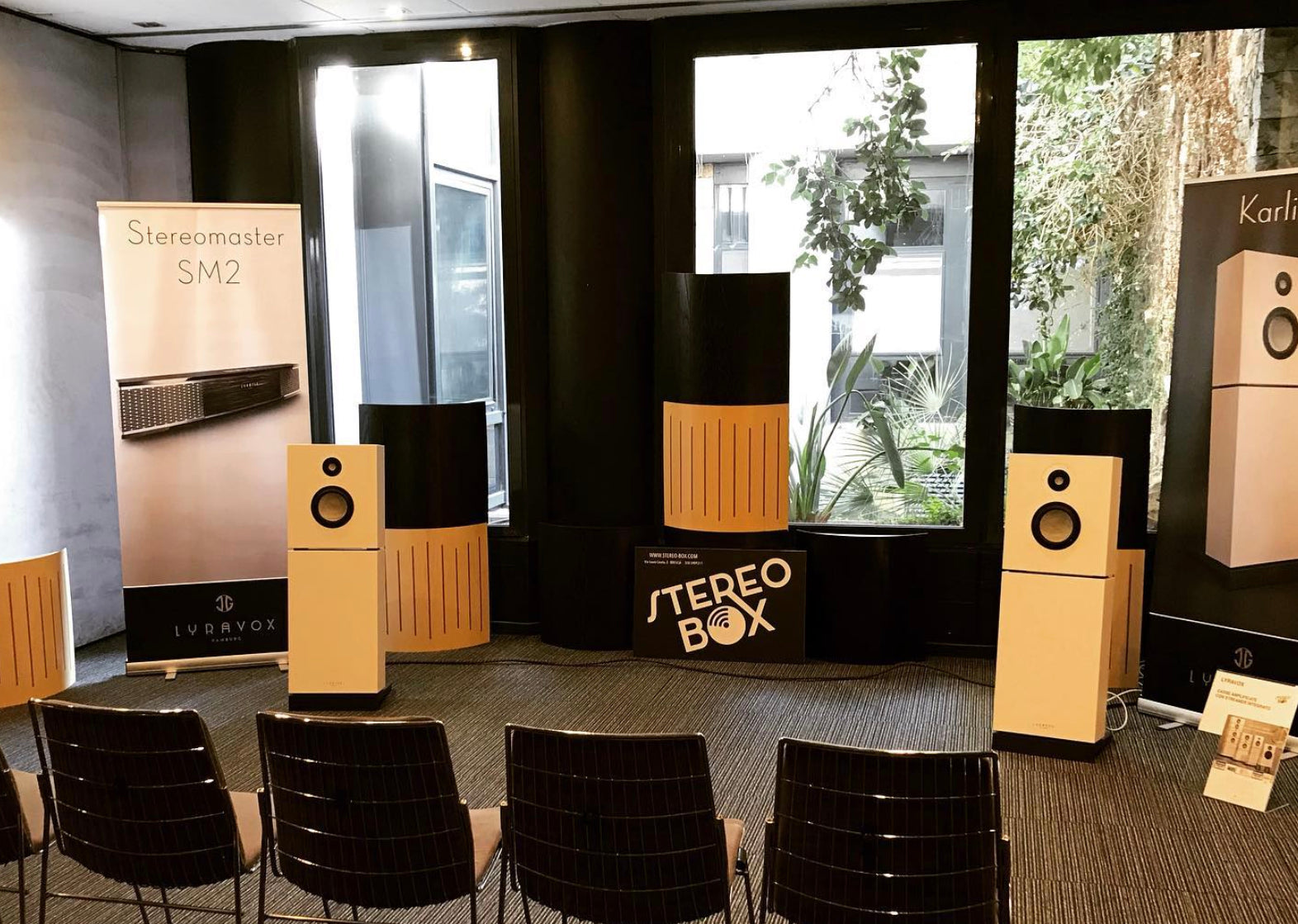
L'amore per la buona musica
Chi siamo
Abbiamo scelto questa attività per passione, e con passione la portiamo avanti. La nostra esperienza, nella riproduzione musicale, nonché in quella della musica dal vivo, ci guida costantemente nelle scelte che facciamo per quanto riguarda i prodotti che andiamo a selezionare per voi.
